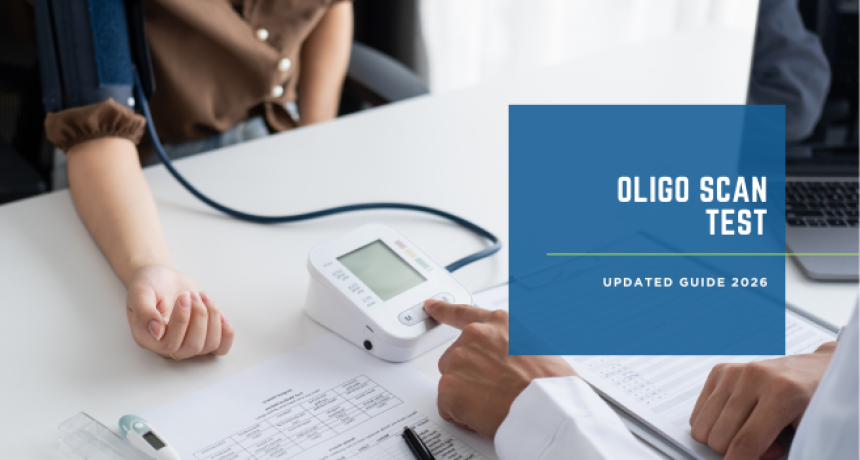Intermittent Fasting & Gut Health: Can Fasting Fix Your Microbiome?
2025-03-25 Intermittent fasting (IF) has become one of the most popular wellness trends in recent years, with proponents claiming a variety of health benefits, from weight loss to improved metabolic function. But what about a gut health microbiome diet? With the growing interest in gut microbiome research, many are wondering if intermittent fasting can help restore or improve gut health, which plays a crucial role in digestion, immunity, and overall well-being. The gut microbiome is a complex community of trillions of bacteria and other microorganisms that help digest food, regulate immunity, and even influence mood and behavior. A balanced microbiome gut health is key to good health, but factors like diet, stress, and lifestyle choices can disrupt the delicate balance of beneficial and harmful bacteria. Understanding what affects the gut microbiome is crucial for maintaining optimal health. In this blog, we'll explore the science behind intermittent fasting, how it may impact your gut microbiome, and whether fasting can be a tool for improving digestive health. We'll also discuss how to test gut microbiomes to monitor your progress. Let's dive into the latest research and findings to see if intermittent fasting really is a solution for fixing your microbiome gut health. What Is Intermittent Fasting? Intermittent fasting is an eating pattern that alternates between periods of eating and fasting. Unlike traditional diets that focus on food restrictions or calorie counting, intermittent fasting revolves around when you eat rather than what you eat. There are several popular methods of intermittent fasting, including: The 16/8 Method: Fast for 16 hours and eat within an 8-hour window (e.g., eat between 12 PM and 8 PM). The 5:2 Method: Eat normally for five days of the week and consume very few calories (about 500-600) for the other two days. Alternate-Day Fasting: Fast every other day, alternating between fasting and eating normally. Eat-Stop-Eat: Fast for 24 hours once or twice a week, from dinner to dinner or lunch to lunch. Intermittent fasting is associated with benefits like weight loss, improved insulin sensitivity, lower inflammation, and better cardiovascular health. But can it also improve gut health? Let's explore how fasting might influence the microbiome gut health. The gut microbiome is made up of trillions of bacteria, viruses, fungi, and other microorganisms that help in digestion, nutrient absorption, and overall health. A healthy gut microbiome is diverse, meaning it contains a variety of different types of microbes that work together in harmony. Diversity is associated with better gut health, while a lack of diversity can be linked to conditions like IBS, inflammatory bowel disease (IBD), and even obesity. Research suggests that intermittent fasting can have a positive impact on gut microbiome diversity. Studies have shown that fasting periods can: Encourage the growth of beneficial bacteria: Fasting may encourage the growth of bacteria that are beneficial to digestion and overall health, such as those that produce short-chain fatty acids (SCFAs), which play a crucial role in gut health and immune function. Increase microbial diversity: Some studies have suggested that fasting increases microbial diversity in the gut. Greater diversity is typically associated with improved digestion, a stronger immune system, and better metabolic health. One of the key benefits of intermittent fasting is its ability to reduce inflammation in the body. Chronic inflammation is a major factor in many gut-related issues, such as leaky gut, IBS, and IBD. The gut microbiome plays a major role in regulating inflammation, and an imbalance in gut bacteria can lead to an overactive immune response, causing inflammation. Intermittent fasting has been shown to: Reduce gut inflammation: Fasting periods may help lower markers of inflammation in the gut, leading to a healthier gut lining and better absorption of nutrients. Support gut barrier function: Some studies have suggested that intermittent fasting can enhance the integrity of the gut lining, reducing the risk of intestinal permeability (also known as leaky gut), which has been linked to autoimmune diseases and other chronic conditions. Fasting doesn't just reduce inflammation; it also promotes gut healing. During periods of fasting, your body may activate certain biological pathways that encourage the repair and regeneration of gut cells. For instance: Autophagy: Intermittent fasting triggers a process called autophagy, where the body breaks down and recycles damaged cells, including those in the gut. This cellular cleaning process can contribute to better gut health by removing damaged or infected cells, thus reducing the risk of chronic gut issues. Regeneration of gut lining: Studies suggest that intermittent fasting can help repair the intestinal lining, improving nutrient absorption and protecting against harmful pathogens. Research has shown that intermittent fasting can influence the balance between good and bad bacteria in the gut. Since fasting restricts food intake, it may help reduce the overgrowth of harmful bacteria that thrive on constant food supply, such as pathogens and bacteria that produce harmful byproducts. On the flip side, beneficial bacteria that help break down fiber and produce beneficial compounds, like SCFAs, may thrive during fasting periods. Additionally, fasting can lead to the activation of certain gut hormones and signaling pathways that help control the growth and behavior of gut bacteria. This can lead to a better balance between firmicutes (fat-storing bacteria) and bacteroidetes (lean-promoting bacteria), two major bacterial groups involved in weight regulation. Understanding what affects gut microbiome balance is crucial for optimizing your fasting protocol. Gut motility refers to the movement of food through your digestive tract. Poor motility can lead to symptoms like constipation, bloating, and indigestion. Intermittent fasting may improve gut motility by giving the digestive system time to rest and reset during fasting periods. As the gut is not constantly processing food, it may become more efficient at breaking down and absorbing nutrients. While intermittent fasting may offer benefits for gut health, it is not a quick fix for a dysfunctional microbiome. A healthy gut is influenced by many factors, including: Diet: A balanced, fiber-rich gut health microbiome diet filled with whole foods like fruits, vegetables, legumes, and fermented foods is key to supporting gut health. Stress management: Chronic stress can disrupt the gut microbiome, so managing stress is essential for maintaining a healthy gut. Sleep: Good quality sleep is crucial for overall gut health, as it supports the body's ability to regulate gut bacteria and repair gut cells. Fasting may improve gut health, but it should be part of an overall lifestyle that includes a balanced diet, regular physical activity, and stress management techniques. You might also consider taking a gut microbiome supplement to support your journey. If you're considering intermittent fasting to improve your gut health, here are some tips to maximize the benefits: Start Slow: If you're new to fasting, begin with shorter fasting windows, such as the 12/12 method (12 hours of fasting and 12 hours of eating). Gradually increase the fasting period as your body adjusts. Focus on a Healthy Diet: During your eating windows, focus on a nutrient-dense gut health microbiome diet that supports gut health. Include food for gut microbiome health like fiber-rich vegetables, fermented foods (e.g., yogurt, kimchi), and prebiotics (e.g., garlic, onions, leeks) that nourish beneficial gut bacteria. Stay Hydrated: Drink plenty of water throughout the day, especially during fasting periods. Hydration supports digestion and helps maintain healthy gut motility. Listen to Your Body: If fasting negatively affects your digestive system or causes discomfort, it may not be the right choice for you. Pay attention to how your body responds and adjust accordingly. Monitor Your Progress: Consider getting a microbiome gut test to track changes in your gut bacteria over time and see how fasting affects your personal microbiome. Yes, intermittent fasting may help reduce gut inflammation and improve gut motility, which can alleviate symptoms of IBS and bloating. However, it's important to combine fasting with a gut-friendly diet and other healthy lifestyle practices. Yes, research suggests that intermittent fasting may increase the diversity of beneficial gut bacteria, which is linked to better overall microbiome gut health. Intermittent fasting may help support gut healing by reducing inflammation and promoting the regeneration of gut cells. However, it is not a guaranteed cure for leaky gut, and additional dietary changes may be necessary. If you're generally healthy and have a well-balanced diet, intermittent fasting could offer gut health benefits. However, if you have a medical condition like IBS or autoimmune diseases, it's best to consult a healthcare professional before starting a fasting regimen. There are several methods for how to test gut microbiome health, including stool tests that analyze the composition of your gut bacteria. Many companies offer microbiome gut test kits that you can use at home. These tests can provide insights into your gut bacteria diversity and help you track changes over time. While fasting can benefit your gut health, some people may benefit from taking a gut microbiome supplement to support beneficial bacteria. Probiotics, prebiotics, and postbiotics are all options to consider, but always consult with a healthcare provider before starting any supplement regimen. Intermittent fasting may have a positive impact on your gut health by improving bacterial diversity, reducing inflammation, promoting gut regeneration, and supporting a balanced gut microbiome. While fasting alone is not a cure-all for gut issues, when combined with a healthy gut health microbiome diet and lifestyle, it can be an effective tool for supporting long-term gut health. 📌 Ready to Try Intermittent Fasting for Your Gut Health? Start your fasting journey today and monitor your gut health to see the benefits. Consider a microbiome gut test to track your progress and understand how fasting affects your personal microbiome. Consult with a gut health expert to determine if intermittent fasting is right for your microbiome and overall health. Embrace a gut-friendly diet during your eating windows to maximize the positive effects of intermittent fasting. Incorporate the right food for gut microbiome health and consider a gut microbiome supplement if needed. Give your gut the support it needs for better health, and experience the potential benefits of intermittent fasting for yourself!Introduction

How Does Intermittent Fasting Affect the Gut Microbiome?
1. Changes in Gut Bacterial Diversity
2. Reducing Gut Inflammation
3. Enhancing Gut Healing and Regeneration
4. Balancing Gut Bacteria
5. Impact on Gut Motility
Can Intermittent Fasting Fix a Dysfunctional Microbiome?
The Best Way to Use Intermittent Fasting for Gut Health
FAQs
1. Can intermittent fasting help with gut issues like IBS or bloating?
2. Does intermittent fasting improve gut bacteria diversity?
3. Can fasting heal a leaky gut?
4. Should I try intermittent fasting for gut health?
5. How can I test my gut microbiome?
6. What supplements can support my gut microbiome during fasting?
Final Thoughts: Is Intermittent Fasting the Key to a Healthier Microbiome?
.png)















